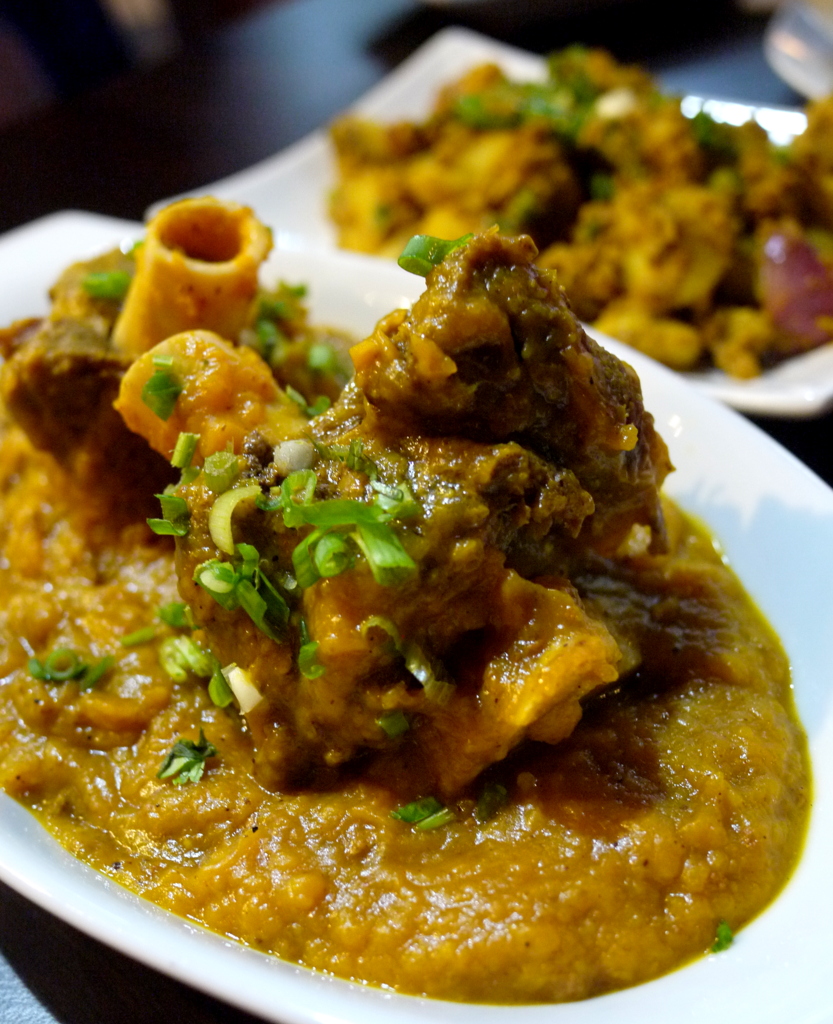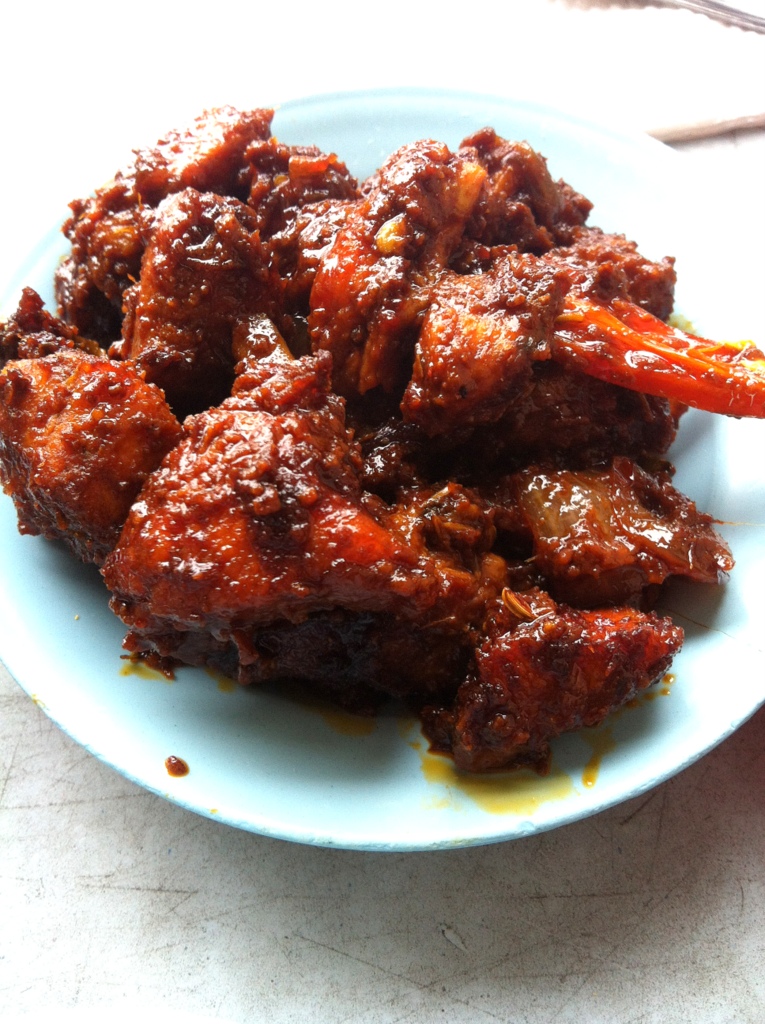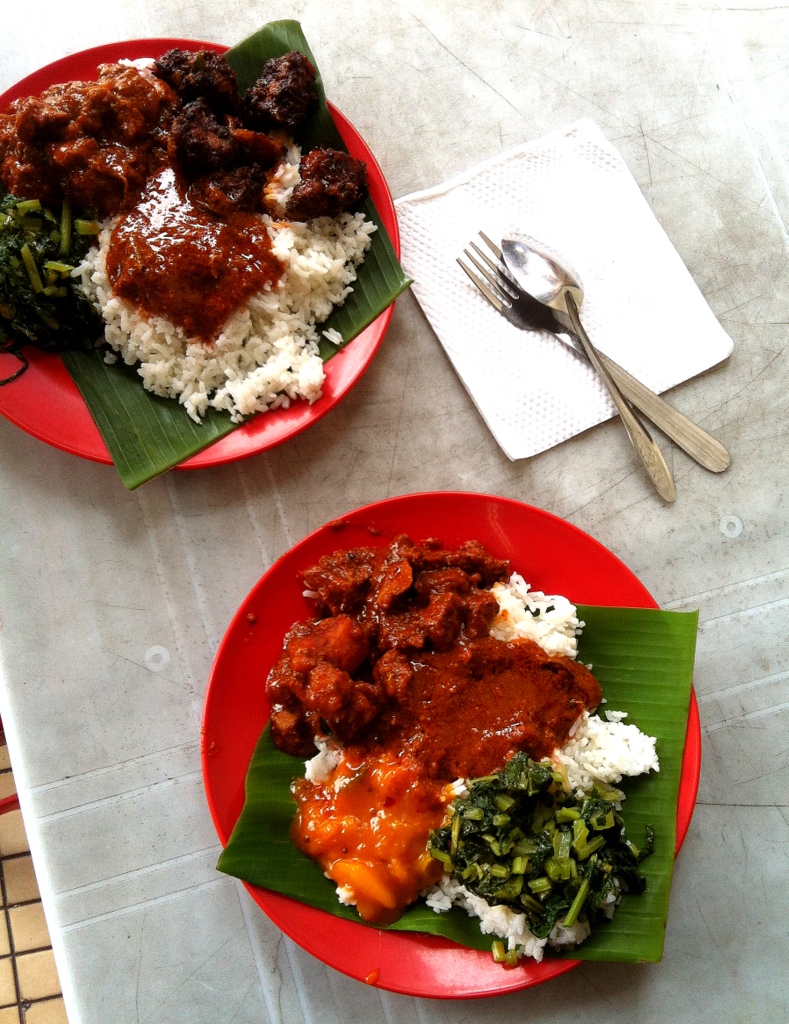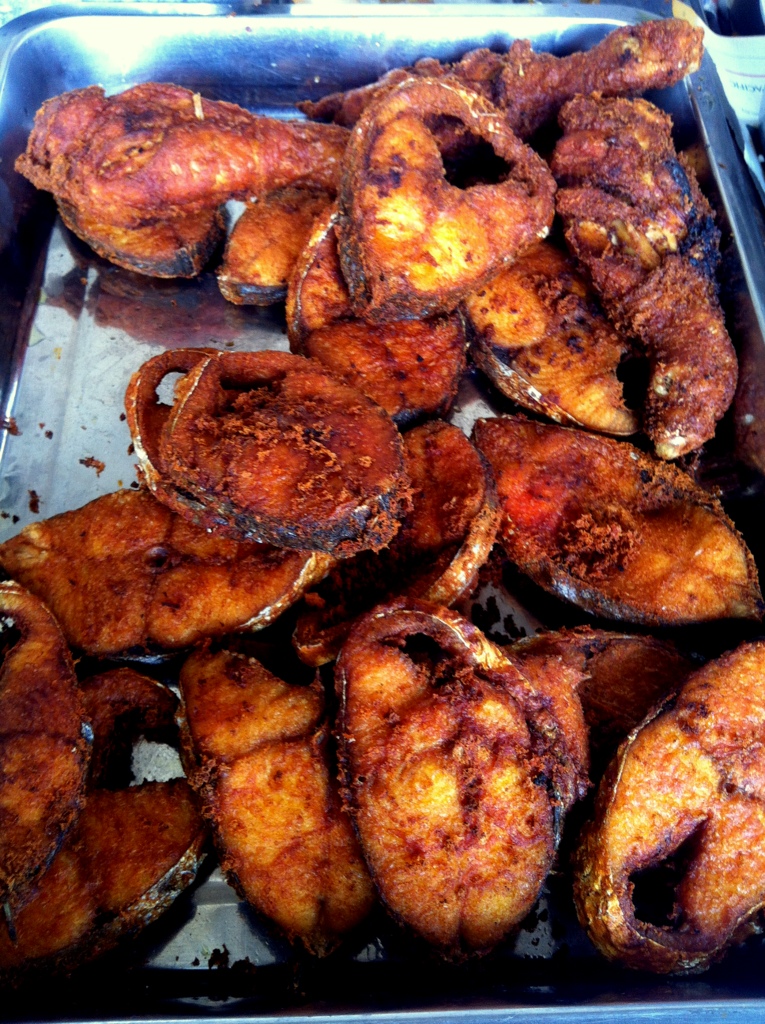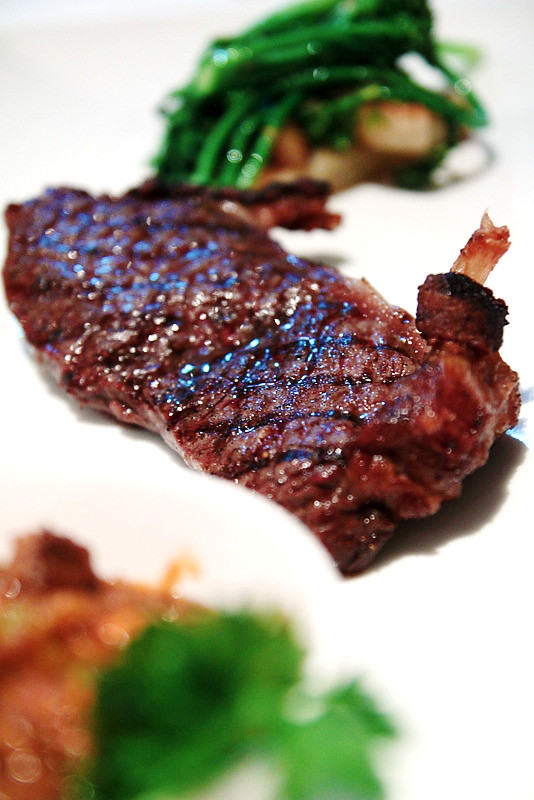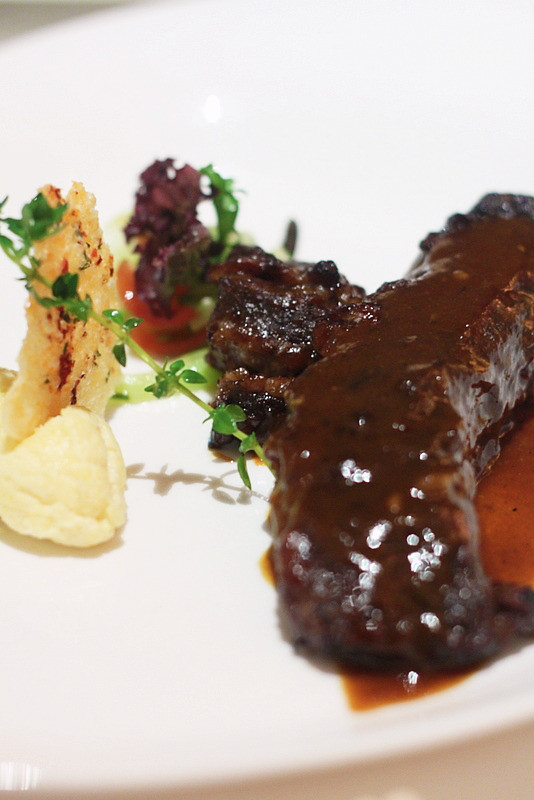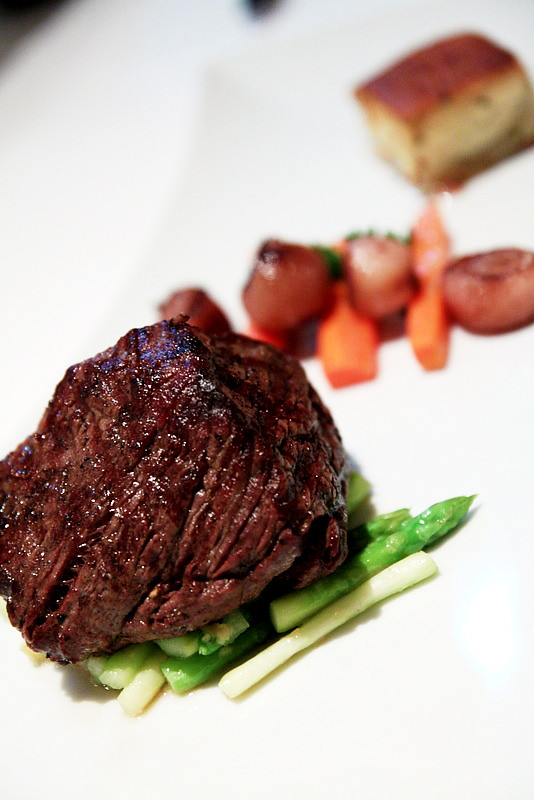*This is the air I breathe
This is the air I breathe
Your holy presence living in me
The subject of spirituality naturally arose while we were talking about Nepal. We were three individuals – one, who had visited Nepal 15 years ago, another who was born in Nepal but had moved away decades earlier, and then there was me – I, who had only seen Nepal in pictures. We were three individuals who knew each other on vastly varying levels, and we were gathered at the dinner table outside the restaurant one late evening, surrounded by concrete and the occasional passing vehicle, the scent of exhaust fumes suffusing the air and the melodious tinkling of percussion instruments from the speakers softly disturbing the otherwise quiet night.
I cut a tender piece of meat from the plate of pumpkin curry with mutton marrow. The dish had been cooked long enough for the mutton to lend flavour to the curry, a complex and rich, sweet and savoury, thick broth. This is a family recipe, so the typical visitor to Nepal may not be familiar with a dish such as this. At an earlier meal at the restaurant, I had learnt that a spice, “timmur” (with a similar taste profile as szechuan pepper), was used in this dish, which explained the tingling numbness I experienced when I ate it. This had to be my favourite dish at the restaurant.
“Everyone I know who has been to Nepal comes back with new-found spiritualism,” said one of them.
“It’s inevitable, isn’t it?” I replied. “One has to believe in a greater power when one sees the magnificence of the Himalayas.”
“It’s not just that,” said the other man. “One can find spiritualism in many things. For me, it was in my interaction with people I met along the way in Nepal. My conversation with a total stranger there was the turning point in my life. I was inspired by what she had shared with me, and as a result of that, I knew that I had to take risks and follow my dream.”
He picked up a steamed momo (a dumpling claimed by Nepal, Tibet and the surrounding regions as their own) , and cut it into two on his plate. Liquid squirted out as he realised, a split second too late, that he should have put the entire thing into his mouth instead. I carefully handled my momo and ate it like I would a xiao long bao. I have come to realise that momos are quite different from Chinese dumplings. Texturally, the skin is doughy and not as fine as Chinese dumplings, and the filling is not as subtle; this one had minced chicken and coriander, while in Nepal, one can even find momos filled with buffalo and yak meat.
“There’s something about travelling alone,” said the first man. “You have all these thoughts and reflections in your head….,” his voice trailed off. “You can find spirituality anywhere, you know,” he added, “even here.”
I suppose he was right. It is in the enjoyment of fellowship and communality, and in things so beautiful and glorious that they make you weep in their very presence. Art, nature, poetry, science.
The food at the restaurant is not unfamiliar. Rice is a staple in Nepal, as it is here in Malaysia, and one can order a thali set consisting of rice, black bean daal and a selection of vegetables. The style of cooking is primarily that of the Thakali people, and many of the spices used in the cooking are flown in from Nepal. If I had to name one herb that is widely used in many of the dishes here, it is coriander. Flavours are more indistinct as compared to what Malaysians are used to, but that isn’t necessarily a bad thing.
And so it was that spirituality was never defined in the course of our conversation, each one hesitant to broach the idea of God and the state of our belief (or nonbelief) in a greater being, but each one acknowledging that it represents the divine internal experience of an individual. Religion, I notice these days, has become a dirty word, that one either attempts to become a part of the world by denouncing it, or quietly practises it for insurance.
I downed my cup of Nepali chyaa, a traditional Nepalese masala tea recipe, and called it a night.
________
*Breathe – Michael W. Smith. This song, in all its simplicity, has been the inspiration for this post.
________
This write-up is a culmination of two visits, the first, an invited review (thanks, Robin Sherchan!), and the second, an impromptu late night visit after a long day at the office where I was in dire need of warmth (food and company). I was satisfied on both aspects.
________
For a humorous and totally witty take on his meal at Restaurant Nepal – Himalayan Cuisine, check out Fatboybakes’ blog. And no, he is NOT one of the individuals mentioned above. We don’t have deep conversations. We spend most of our time together saying meaningless things like “yennadei”, “vanakkam”, “biatch”, etc. Which is fine, really.
________
Restaurant Nepal – Himalayan Cuisine (directly opposite TGI Friday’s, outside)
F-O-6 Ground Level
Plaza Damas Shopping Centre
60 Jalan Sri Hartamas 1
50480 Kuala Lumpur
+6 016 9770 718 , +6 03 6206 3904
Open daily. Lunch and dinner.
www.facebook.com/RestaurantNepalKL
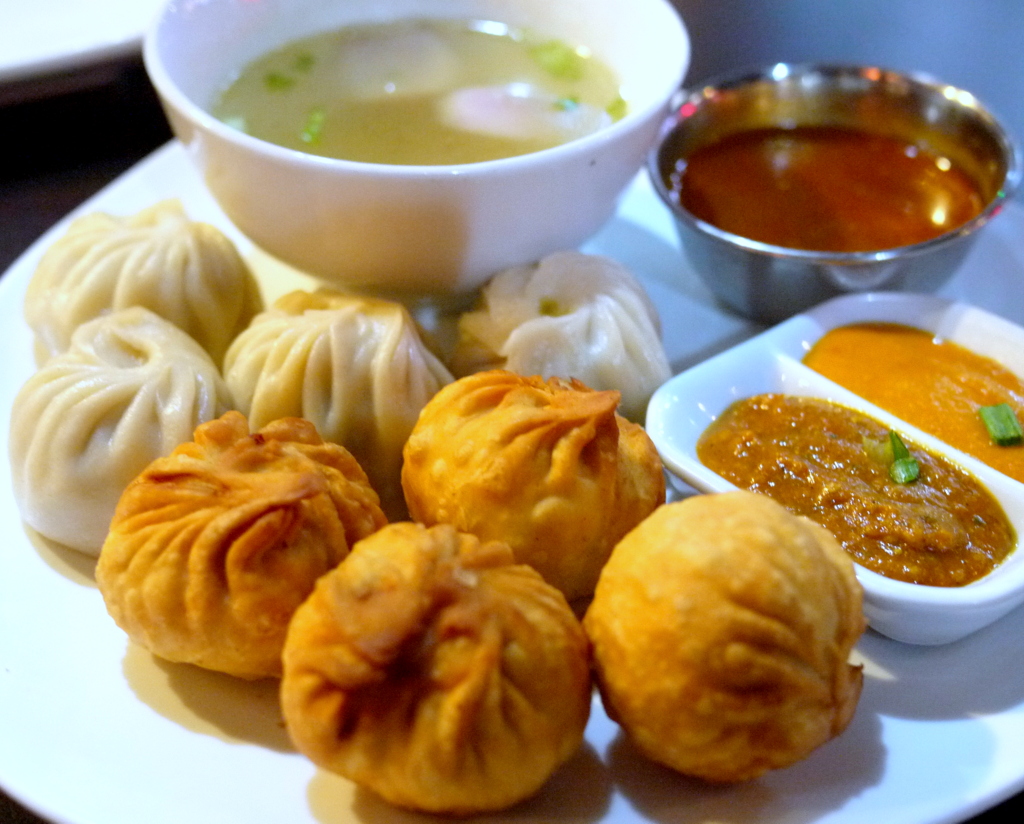
Deep fried momos and steamed momos. RM12. There is also a pan-fried option which I haven’t tried. My personal favourite is the deep fried kind. Nice crunch, crispy skin, luscious chicken filling. Can’t go wrong.
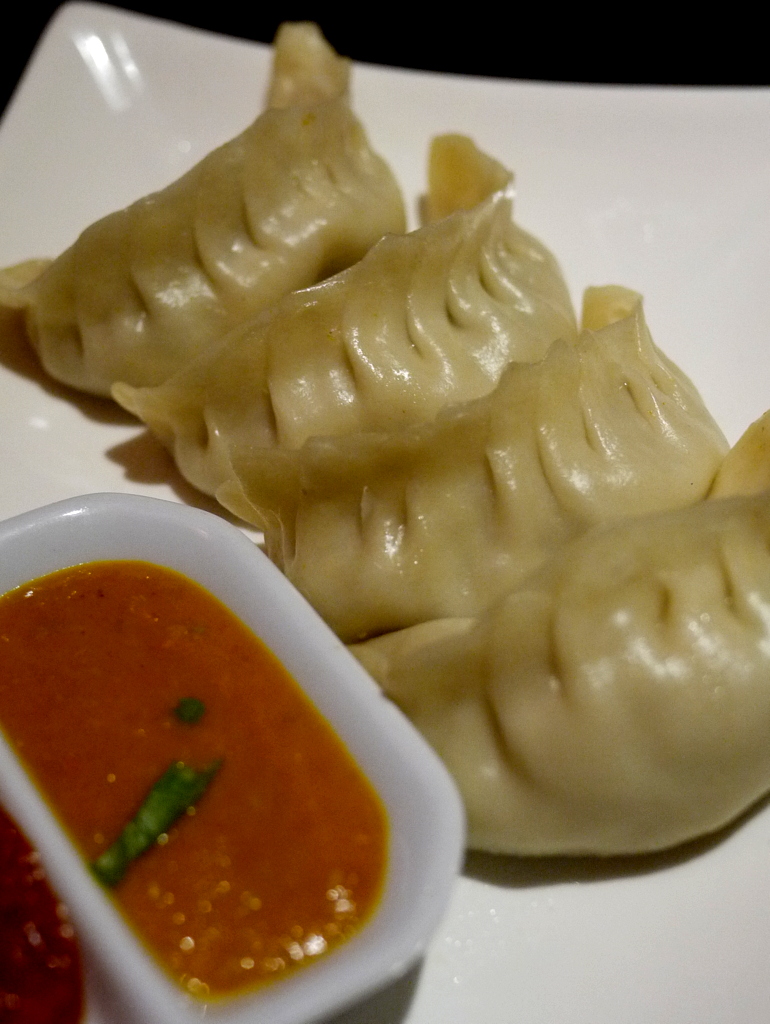
More momos. Steamed momos. Depending on the cook, you may sometimes get the round momos like in the picture above this, or the crescent shaped momos like in this picture.
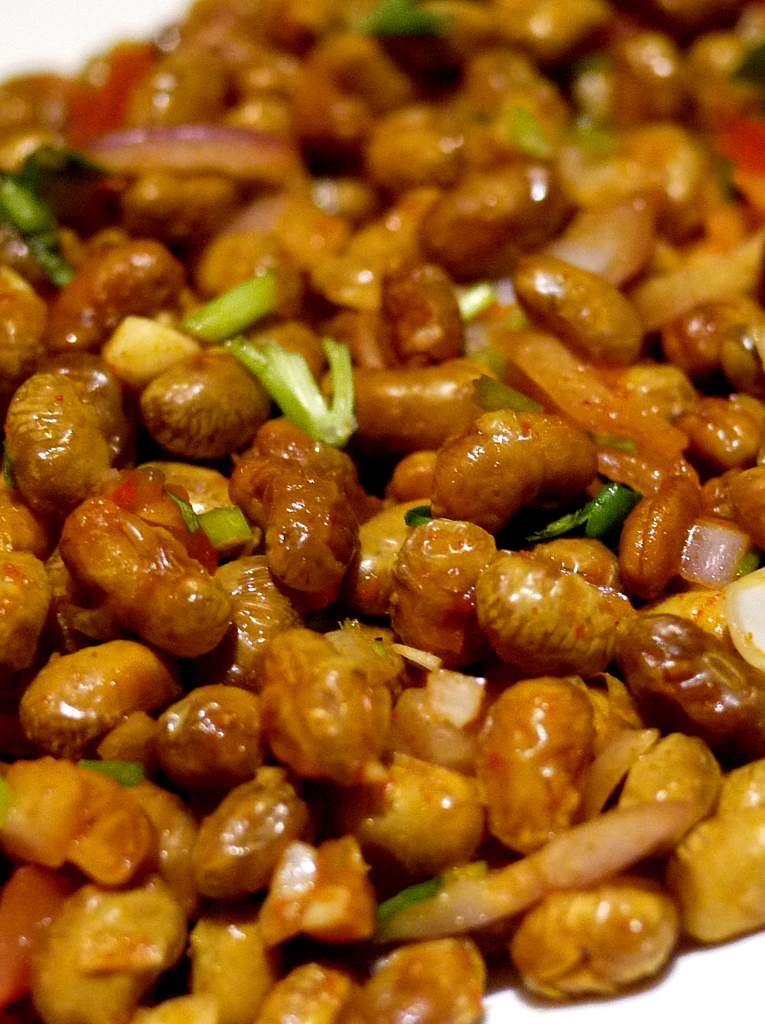
Bhuteko bhatmas. RM9. Crispy soybeans marinated in Nepalese spice. As a complement to dishes, probably not. But will go wonderfully with drinks. (Tip: Order the Shangri-lla – a light refreshing sangria with finely sliced bits of apple RM9/glass RM40/jug.)
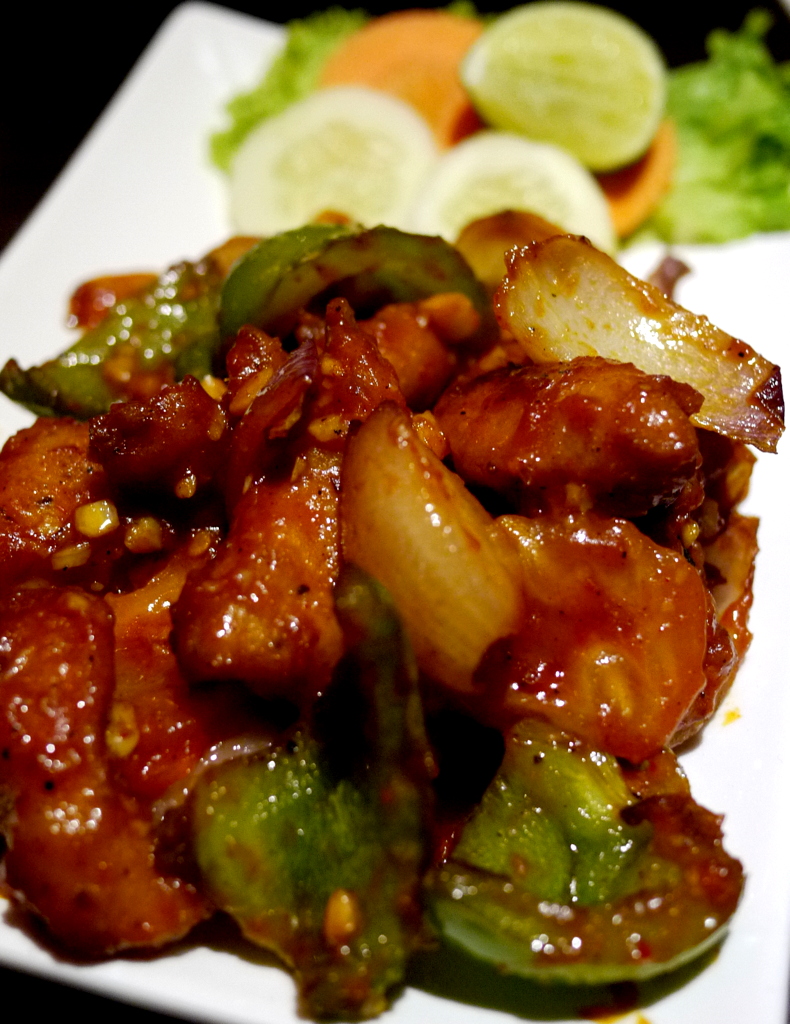
Chicken chilli. RM12. Battered chicken pieces marinated in herbs, fried with onions, capsicum, green chillies and tomatoes in a sweet and sour sauce. Reminiscent of a Chinese sweet and sour dish, but then again, that’s not surprising as Nepal borders China and there will invariably be overlapping influences in their foods.
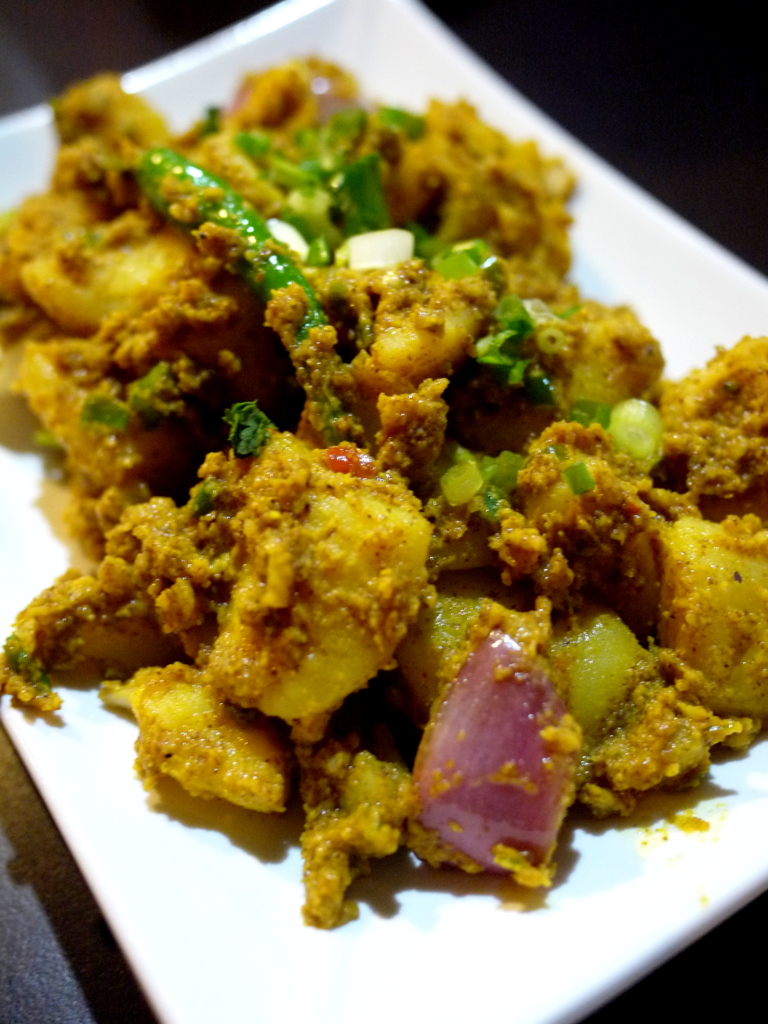
Aloo silam. RM12. Boiled potatoes marinated with red onions and silam (perilla seeds). Rather unremarkable for my palate.
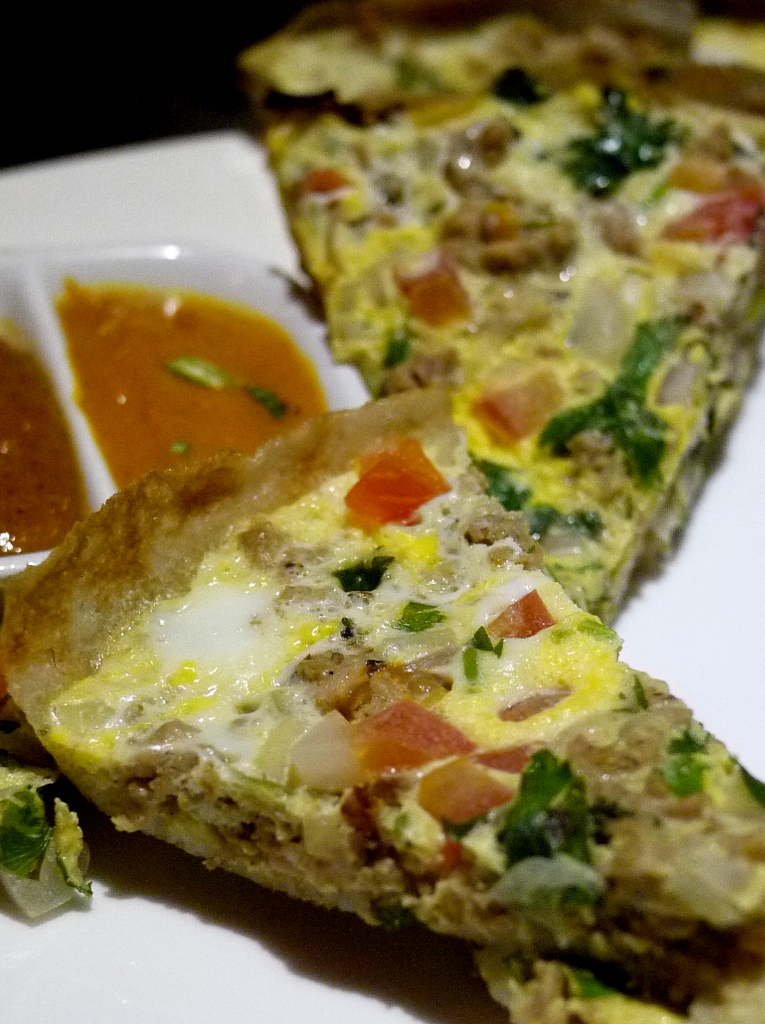
Chata-mari. RM12. Nepalese version of pizza. Thin crusted battered rice crepes with minced chicken, spring onions, tomatoes and egg.
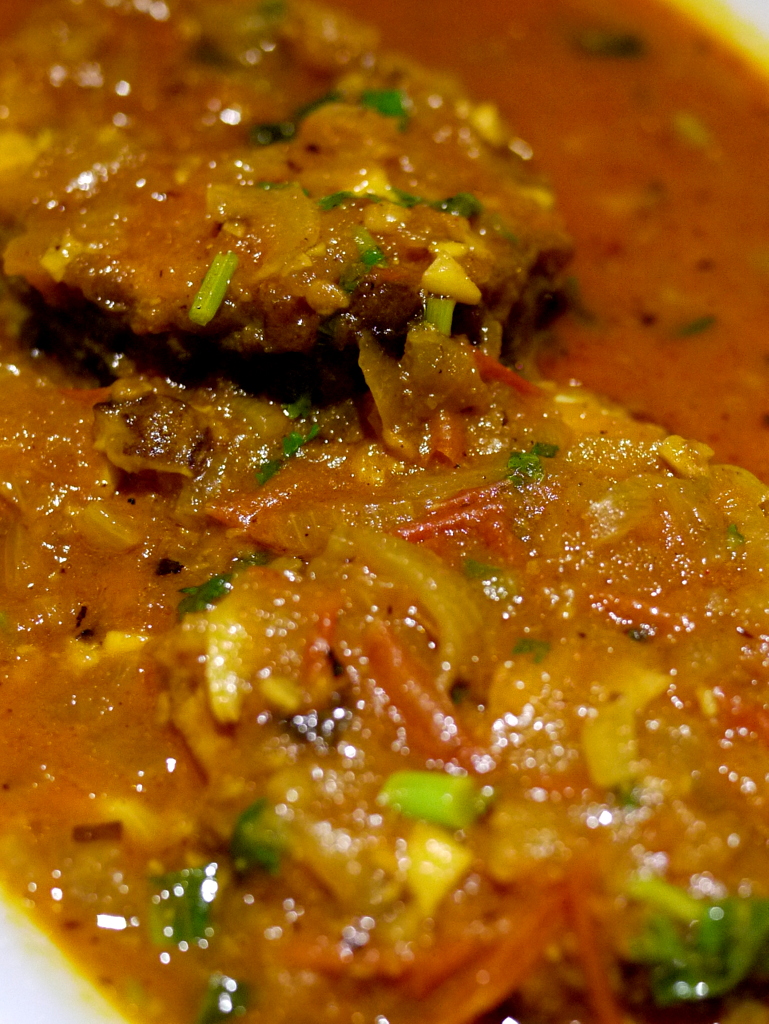
Jhwol maccha. RM18. Fish in a spicy and sour curry. One of my favourites as it has the right amount of tanginess.
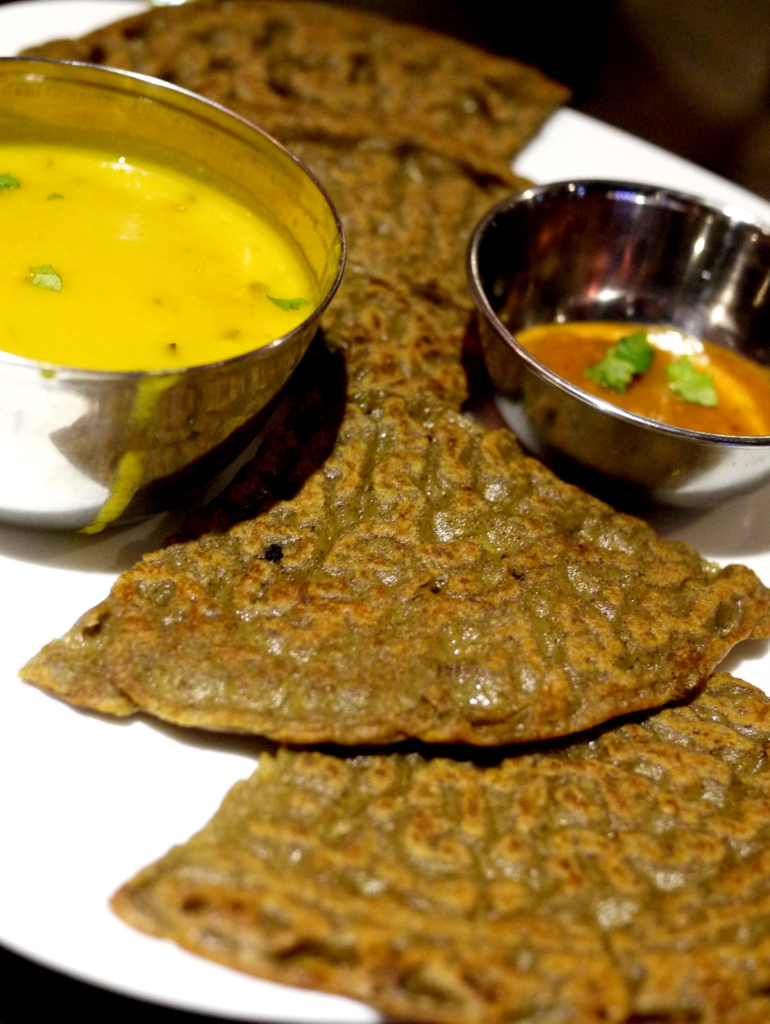
Fapar ko roti. RM7. Buckwheat bread.
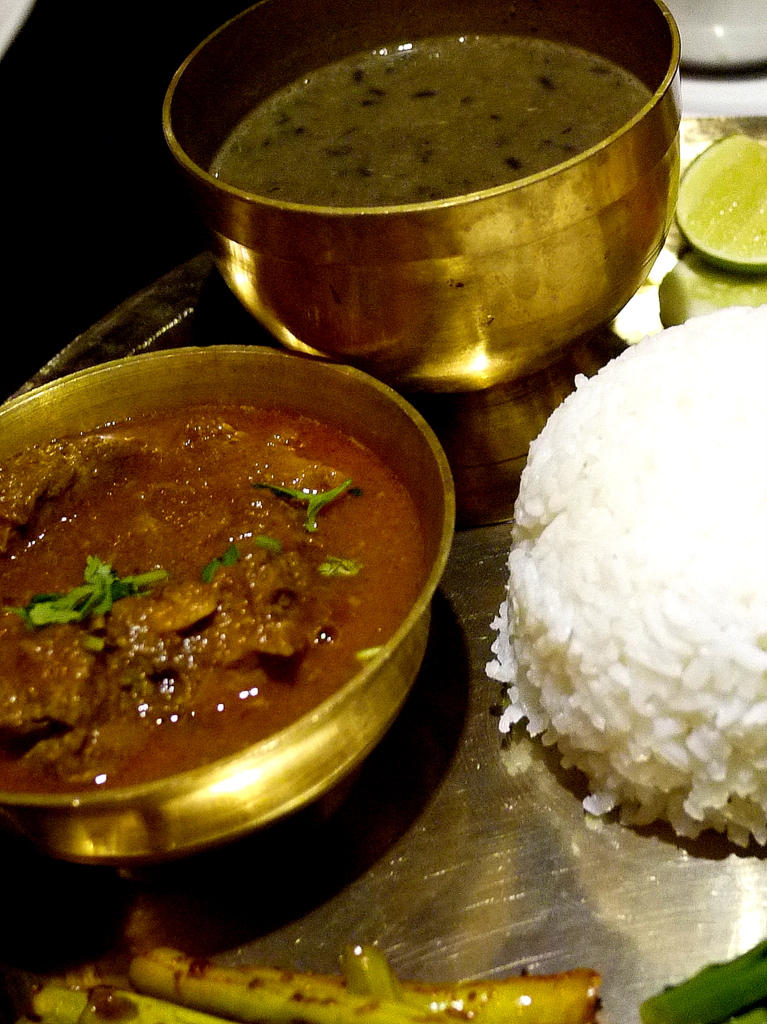
Khasiko masu bhat. RM17. Mutton Thakali thali set with black bean daal and an assortment of vegetables. Obviously, this will be a complete meal in itself. I’d order it again just to eat from the brass bowls.
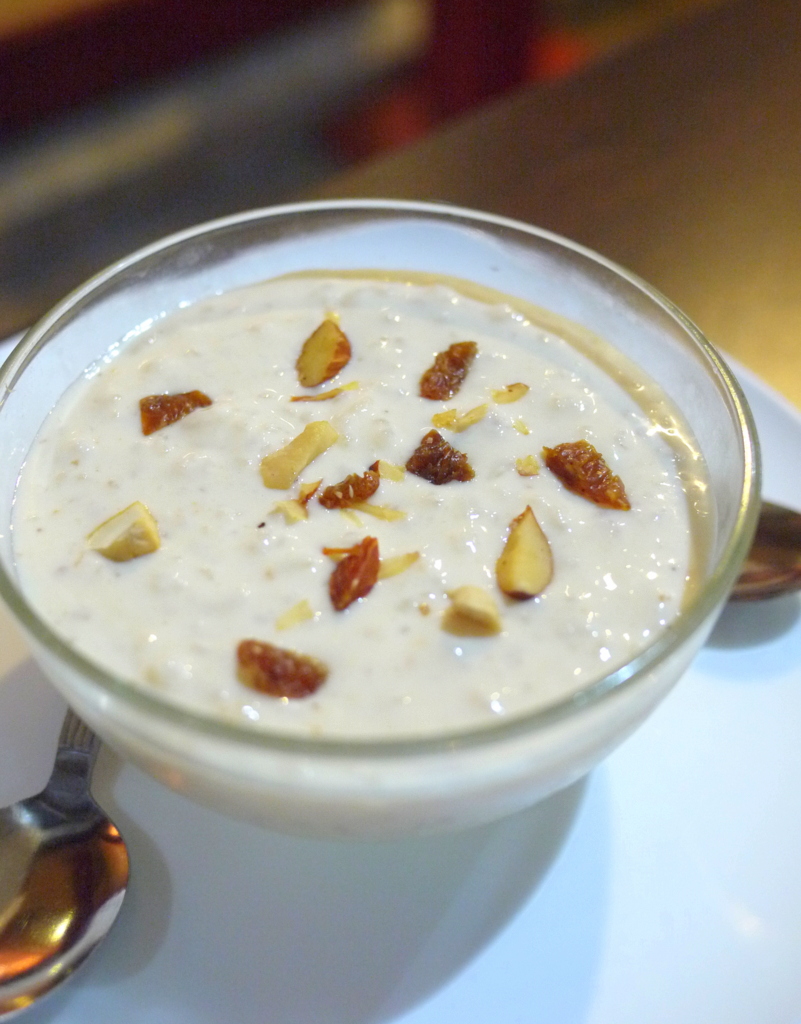
Kheer. RM8. Rice pudding cooked in milk and cloves. Leave room for this. That is, if you’re like me and you like sweet desserts.

